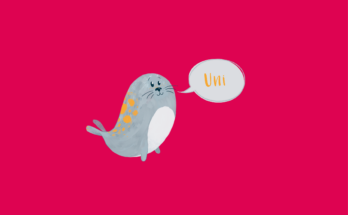von Bastian Karge. Aus dem Archiv: Heft Nr. 128.
Politics in Germany would not be possible without parties. According to Article 21 of the Basic Law, the political parties “shall participate in the formation of the political will of the people.” By aggregating, representing and also influencing people’s opinions, they are fundamental to political decision-making. In response to the problems of the Weimar Republic with its large number of parties, the Federal Republic of Germany introduced a Five-Percent-Clause to limit the number of parties in parliament. From 1949 to 1983, a tripartite landscape – the Christian Democratic/ Social Union (CDU/CSU), the Social Democratic Party (SPD) as well as the Free Democratic Party (FDP) – dominated politics in Germany. With the rise of the ecological and anti-atomic movement, a fourth party – “Alliance 90/The Greens” (Bündnis 90/Die Grünen) – joined the political constellation of Germany. With the integration of the German Democratic Republic into the Federal Republic of Germany in 1990, the successor party to the governing party of the Democratic Republic of Germany – PDS, later reformed as “The Left” (Die Linke) – became part of German politics. For a long time, this five-party system dominated political decisions in Germany alongside smaller parties at the federal state level. In 2017, for the first time in a long while, a right-wing populist party, this time the “Alternative for Germany” (AfD), has moved into the Bundestag. But enough history, let’s get to the parties themselves:
The SPD was founded in 1890 as the Labour Party and later transformed into a center- left “Volkspartei” (people’s party) in 1959. Famous social democratic politicians in the Federal Republic were former Chancellors Willy Brandt, known for change through rapprochement, and Helmut Schmidt. It positions itself as a progressive party for freedom, social justice and solidarity and has achieved most of the social progress in Germany. In the last elections, the SPD lost due to the declining sympathy caused by neoliberal policies at the beginning of the century. Therefore, the chairman Norbert Walter-Borjans and chairwoman Saskia Esken try to make the SPD a more left-wing party.
CDU and CSU – together called the “Union” – represent the conservative “Volkspartei” in Germany and supports economic liberalism and Christian values. The unique thing about these two traditional-orientated parties is that the CSU only runs for office in the Free State of Bavaria and the CDU in the other federal states. In the Bundestag, they work together as one fraction, which has always been the largest except for two times. They were founded in 1950 and most of the Federal Chancellors came from this party, such as the first Chancellor Konrad Adenauer and the current Chancellor Angela Merkel. They are still the largest party in Germany but are losing popularity to Die Grünen on their left and the AfD on their right. The current chairwoman of the CDU is Annegret Kramp-Karrenbauer (current no chairman/chairwomen – 02.10.2020), and the chairman of the CSU is Markus Söder.
For a long time the FDP had a core position, because it could decide whether to work with the left-wing SPD or the right-wing CDU/CSU as a junior partner in a coalition. The FDP was founded in 1948 and, although it never appointed a chancellor, had other essential politicians such as the first Federal President Theodor Heuss or the Foreign Minister Hans-Dietrich Genscher during the reunification of Germany. It primarily represents economic liberalism, but also social liberalism. The well-known chairman of the FDP is Christian Lindner.
“Bündnis ‘90/Die Grünen” entered the political landscape of the Federal Republic in the 1980s. Die Grünen represent predominantly ecological, feminist and pacifistic ideas, but are ideologically situated between the SPD and FDP. Although they became more powerful than the FDP, they only participated in two governments under Chancellor Gerhard Schröder. Well-known politicians of Die Grünen are the former Foreign Minister Joschka Fischer and the vice president of the Bundestag Claudia Roth. Under chairwoman Annalena Baerbock and chairman Robert Habeck, Die Grünen experienced a gain in popularity and temporarily took over the position as the second strongest party from the SPD due to the growing demand for ecological, sustainable policies.
Die Linke originated from the Party of Democratic Socialism and the secession of the SPD in the 1990s and united to form a party in 2007. With Die Linke, the Federal Republic got a party to the left of the SPD, which supports democratic socialism as a radical form of social democracy. While it is quite successful in the eastern states, it is a smaller party in German politics. Two famous politicians of this party are Gregor Gysi and Federal Minister Bodo Ramelow. Katja Kipping and Bernd Riexinger
currently head Die Linke.
The AfD is a novelty in the German political landscape since its foundation in 2013. Never before 2017, has a right-wing populist party entered the Bundestag. The “Alternative for Germany” conceals a bundle of right conservative, racial and neoliberal ideologies, presented in a genuinely populistic way. Very well known through Björn Höcke and Alice Weidel, the AfD is led by Jörg Meuthen and Tino Chrupalla. While the party has gained popularity in recent years, its popularity is currently stagnating.
As you may see, there are many political parties in Germany. This list of parties is not complete, as there are many others like the „Free Voters“ (Freie Wähler) or the „Pirate Party“ (Piratenpartei). This article is only an enumeration of all relevant German parties. All of them are represented in the Bundestag and in most of the state parliaments. Nevertheless, these six parties offer much more interesting issues for discussion, such as “The unexpected rise of Die Grünen” or “The threat to German democracy posed by the AfD”. But that will be discussed elsewhere.




